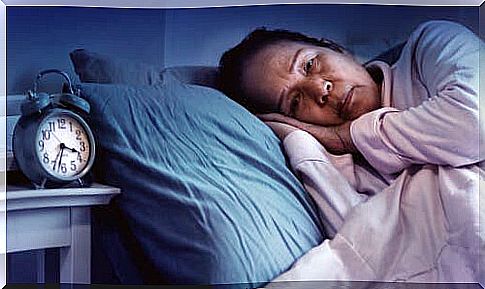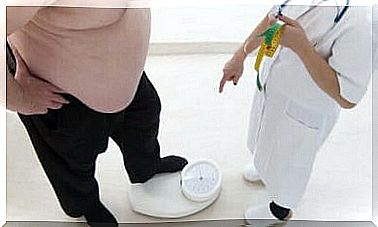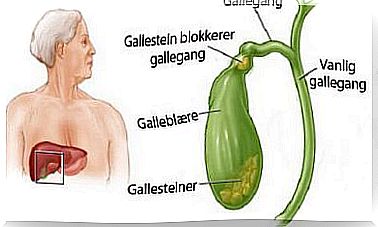Alzheimer’s Disease And Altered Sleep Patterns

Alzheimer’s disease is the leading cause of dementia in the world. Among the many other symptoms, it can lead to sleep disorders. All in all, it is common for different stages of the disease to cause changes in patients’ sleep patterns and quality.
In this article, we will tell you about the most common sleep changes that people with Alzheimer’s disease can suffer from.
What is Alzheimer’s disease?
Alzheimer’s disease is the type of dementia that occurs most among the world’s population. Around 48 million people around the world suffer from it. In addition, given the increase in life expectancy, it is estimated that cases will increase significantly in the coming years.
By definition , it causes a cognitive breakdown that affects the person’s normal life, whether on a personal, social or work-related level. When you have this condition, protein deposits form in and around the nerve cells, as well as cell death and errors in neural communication.
Clinically speaking , the disease causes memory loss. This is the main symptom, and with good reason, but it can manifest itself in many other ways. Some of the symptoms that come with memory loss are changes in language and behavior. This can also mean loss of sleep.

Alzheimer’s disease and sleep changes
Usually, sleep disorders develop along with the disease. However, the changes that occur and the way the patient is affected have to do with the type of person and the stage of the disease they are in.
Sleep changes in Alzheimer’s disease can be divided into different types:
- Changes in sleep architecture: This is related to the sleep phases. In people with Alzheimer’s, the phases of deep sleep are reduced. Micro awakenings and awakenings occur more often. There are also fewer phases of REM sleep and more phases that are not REM sleep.
- Breathing changes: This may include snoring, hypopnea (decreased breathing) and obstructive sleep apnea / hypopnea syndrome (OSAHS). It has been found that patients with the disease have a much higher incidence of these conditions than people who are not affected. Researchers must study them independently since the treatment for these conditions is specific and will be parallel to the disease.
- Restless Legs Syndrome (RLS): This is when the person has to move their legs constantly or periodically when they go to sleep. In addition, restless legs can be accompanied by nightmares.
Sleep patterns change
Alzheimer’s disease causes a change in our biological rhythms. This develops along with the disease, making it more noticeable as it develops.
The fact that your biological rhythms change causes drowsiness throughout the day. Patients may fall asleep during the day and need to take a nap. This can lead to increased social problems as it becomes more difficult to have conversations with and relate to others as normal.
In addition, this drowsiness and sleeping during the day can cause the person to become less sleepy at night. This can cause them to wake up more, become restless and walk around the house.

Sundown syndrome in Alzheimer’s disease
One specific change in the biological rhythms is Sundown syndrome. Here, patients with dementia begin to experience worse symptoms near the end of the day, especially when it comes to behavior. They may become more restless and restless.
In addition to restlessness and nervousness, they may suffer from hallucinations, delusions, unexplained fear, or even rage. Up to 20% of dementia patients have episodes of this syndrome.
What can you do about sleep?
Although it is the most well-known symptom of the disease, one not only experiences memory loss in Alzheimer’s. Many symptoms can accompany the disorder, and they can appear in different ways in each patient. As always, it is extremely important that you get the correct diagnosis, go to your checkups and tell your doctor about all the symptoms you experience.
Whatever the case, a specialist should be the one to decide what the best course of treatment is. In this type of disease, they may need to adjust the treatment several times for it to have the best possible effect.









